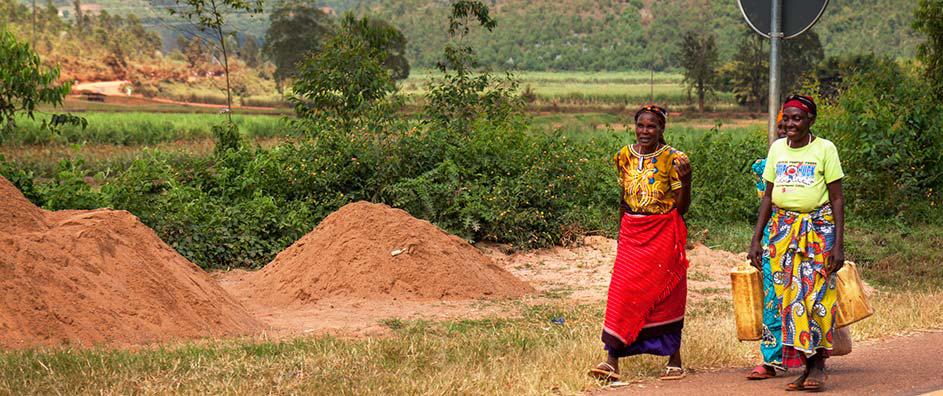The intersection of climate change and global unity presents a compelling paradigm through which the teachings of the Baha’i Faith can be examined, particularly in the context of Rwanda. This East African nation, rich in biodiversity and cultural heritage, serves as a microcosm where the effects of environmental degradation highlight both the urgency of collective action and the potential for fostering unity among diverse peoples.
At its core, the Baha’i Faith emphasizes the oneness of humanity, and this principle resonates profoundly in discussions surrounding climate change. The challenge facing mankind is not merely environmental; it is fundamentally a test of our unity. As the world grapples with increasingly severe climate phenomena—rising temperatures, unpredictable weather patterns, and diminishing natural resources—the call for a cooperative global approach becomes more imperative. Rwanda, with its recent history marked by tragedy and resilience, exemplifies this need for unity, urging societies to transcend divisive barriers in favor of collaborative solutions.
To appreciate the significance of this relationship, it is essential to delve into the Baha’i perspective on the environment. Baha’is regard the natural world as a manifestation of divine creation, underscoring the responsibility of humanity to act as stewards of the Earth. This stewardship is not merely a privilege but a sacred duty, one that requires an acknowledgment of our interconnectedness. Rwanda’s unique biodiversity, from its lush rainforests to its vibrant wildlife, echoes the profound beauty of creation, reminding us that our survival is inextricably linked to the health of our planet.
The metaphor of a tapestry can be aptly employed here, illustrating how diverse strands of humanity can weave together to create a unified whole. In Rwanda, the interplay between environmental preservation and social cohesion demonstrates the threads of humanity at work. As communities face the repercussions of climate change, be it through soil erosion, deforestation, or altered agricultural patterns, the collective response can foster a sense of kinship and shared purpose. Engaging in sustainable practices not only ensures the protection of the environment but also cultivates harmonious relationships among individuals, transcending ethnic and cultural divides.
Rwanda’s journey toward environmental sustainability offers valuable insights into the practical application of Baha’i teachings. Initiatives such as the reforestation project in the Virunga mountains provide a tangible model for integrating ecological awareness and communal cooperation. Through these efforts, communities are united in a shared goal: restoring the planet’s vitality while reinforcing social bonds. This endeavor embodies the Baha’i ideal of collaborative progress, wherein elevating the collective well-being paves the way for future generations to thrive.
Furthermore, the Baha’i teachings advocate for the importance of education as a transformative tool for social and environmental betterment. In Rwanda, educational programs that center on environmental stewardship can empower individuals, instilling a sense of agency that transcends mere survival. Teaching youth about climate science, sustainable practices, and the intricate links between social justice and environmental health fosters a generation that values unity and recognizes the power of informed action. Education becomes the fulcrum upon which the balance of community resilience pivots, echoing the Baha’i belief that knowledge is essential for progress.
As climate change continues to exacerbate disparities among nations, the Baha’i perspective offers a unique lens through which to view the global response. The principle of universal participation is pivotal, suggesting that every voice carries intrinsic value and the potential to contribute to collective knowledge. In the Rwandan context, this notion urges inclusivity in environmental decision-making processes, ensuring that diverse perspectives—especially those of marginalized communities—are accounted for. Emphasizing consultative discourse can engender innovative solutions, reinforcing a sense of belonging and shared responsibility.
Moreover, the environmental challenges encountered by nations are emblematic of broader global phenomena, illustrating that the plight of one is the plight of all. The Baha’i teaching of “the earth is but one country, and mankind its citizens” resonates deeply in this context. Rwanda’s struggles with climate change are reflective of a worldwide crisis. Addressing it requires an acknowledgment of our interconnected fates and a commitment to transcending nationalistic interests in favor of a more global outlook. Engaging with international bodies and local communities alike in collaborative environmental initiatives is crucial, embodying the spirit of unity that Baha’is strive to cultivate.
The metaphor of a garden encapsulates the vision of a united response to climate change. Just as a gardener must tend to each plant with care, recognizing its needs and contributions to the overall ecosystem, so too must humanity nurture the diverse cultures, perspectives, and experiences that enrich our global community. In Rwanda, a country that has experienced profound transformation in the aftermath of conflict, this gardening metaphor takes on special significance. By nurturing resilience and fostering unity, Rwandans can collaborate to cultivate a vibrant, sustainable future.
In conclusion, the Baha’i perspective on climate change and world unity provides a comprehensive framework for addressing one of the most pressing issues of our time. Rwanda stands as a beacon of possibility, exemplifying how the principles of the Baha’i Faith can be translated into meaningful actions that promote ecological sustainability and social cohesion. The intricate tapestry of humanity, woven together through shared purpose and collective stewardship, can effectively confront the challenges posed by climate change. Engaging in this collective endeavor not only honors the divine creation but also affirms the vital interdependence of all living beings on this planet we share.
